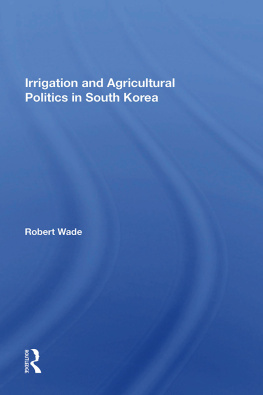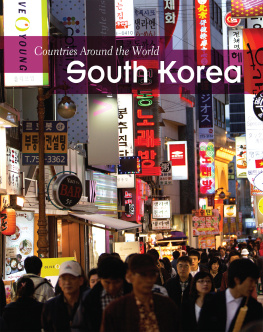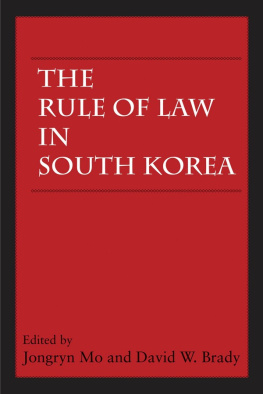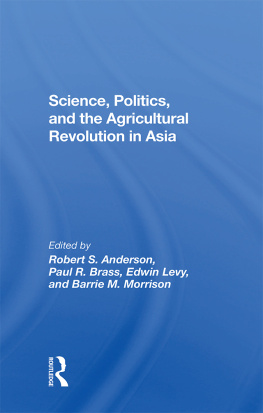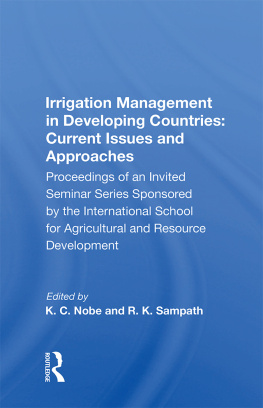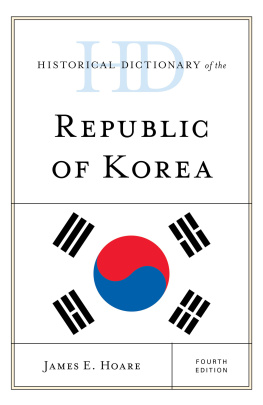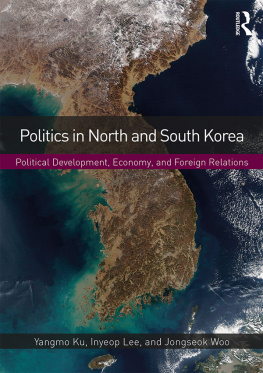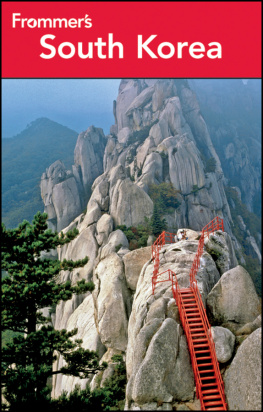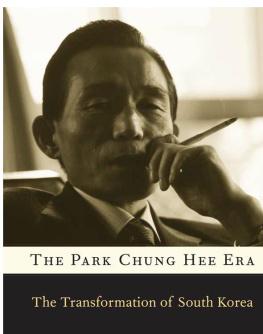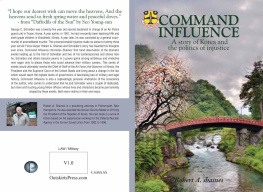Robert Wade - Irrigation and Agricultural Politics in South Korea
Here you can read online Robert Wade - Irrigation and Agricultural Politics in South Korea full text of the book (entire story) in english for free. Download pdf and epub, get meaning, cover and reviews about this ebook. year: 1981, publisher: Westview Press, genre: Politics. Description of the work, (preface) as well as reviews are available. Best literature library LitArk.com created for fans of good reading and offers a wide selection of genres:
Romance novel
Science fiction
Adventure
Detective
Science
History
Home and family
Prose
Art
Politics
Computer
Non-fiction
Religion
Business
Children
Humor
Choose a favorite category and find really read worthwhile books. Enjoy immersion in the world of imagination, feel the emotions of the characters or learn something new for yourself, make an fascinating discovery.
- Book:Irrigation and Agricultural Politics in South Korea
- Author:
- Publisher:Westview Press
- Genre:
- Year:1981
- Rating:4 / 5
- Favourites:Add to favourites
- Your mark:
- 80
- 1
- 2
- 3
- 4
- 5
Irrigation and Agricultural Politics in South Korea: summary, description and annotation
We offer to read an annotation, description, summary or preface (depends on what the author of the book "Irrigation and Agricultural Politics in South Korea" wrote himself). If you haven't found the necessary information about the book — write in the comments, we will try to find it.
Robert Wade: author's other books
Who wrote Irrigation and Agricultural Politics in South Korea? Find out the surname, the name of the author of the book and a list of all author's works by series.
Irrigation and Agricultural Politics in South Korea — read online for free the complete book (whole text) full work
Below is the text of the book, divided by pages. System saving the place of the last page read, allows you to conveniently read the book "Irrigation and Agricultural Politics in South Korea" online for free, without having to search again every time where you left off. Put a bookmark, and you can go to the page where you finished reading at any time.
Font size:
Interval:
Bookmark:

605 Third Avenue, New York, NY 10017
2 Park Square, Milton Park, Abingdon, Oxon OX14 4RN
Product or corporate names may be trademarks or registered trademarks, and are used only for identification and explanation without intent to infringe.
ISBN: 0-86531-264-8
ISBN 13: 978-0-3671-6875-9 (pbk)
DOI: 10.4324/9780429048746
- 2 SOUTH KOREAN AGRICULTURE, ADMINISTRATION AND IRRIGATION
- Climate and Soils
- Cropping and Settlement
- Land, Labour and Technology
- Food Output and Consumption
- Government Policies
- Rural Living Levels
- Administrative Structure
- Irrigation
- Irrigation Organisation
- 3 SY FARMLAND IMPROVEMENT ASSOCIATION
- The Area and the Irrigation System
- SY FLIA's Organisation
- The Budget
- Assessment of Water Charges
- The Irrigation Problem
- 4 THE ORGANISATION OF MAIN FUNCTIONS
- Structures for Water Delivery and Drainage
- Cropping Calendar
- Rules and Roles of Water Delivery
- Operational Information
- Water Supply
- Supplying Water in the Drought of 1978
- The Substitutes for Improved Management
- Agricultural Extension
- Maintenance
- Training
- Conclusion
- 5 THE FARMERS AND THE SYSTEM
- The Reality of Hueng Nong Gye
- The Hueng Nong Gye Leader
- Farmers' Access
- Accountability: Water Charge Collection
- Other Competitions
- Accountability: New Community Movement
- Other means of Accountability
- Why do the Farmers Not Have a Bigger Role?
- Conclusion
- 6 SY FLIA AS GOVERNMENT BUREAUCRACY AND SOCIAL GROUP
- Terms and Conditions of Employment
- Staff Assessment
- Formalisation
- Work, Leisure and Community
- Conclusion
- 7 IRRIGATION REFORM AND THE COMPARATIVE STUDY OF IRRIGATION ORGANISATION
- New Community Movement Reform
- The Proposed FLIA Reform
- FLIA Staff's Reaction to the Reform
- Comparison with Taiwan
- 8 STATE CONTROL AND INTERPRETATIONS OF SOUTH KOREAN DEVELOPMENT
- South Korea in the Development Debate
- The Limitations of the Neo-Classical Interpretation
- Leadership Commitment to Growth
- 'One Capital'
- 'One Farm'
- The Political Regime
- The Operation of Bureaucratic Hierarchies
- The Future of the Directive State
- 2 SOUTH KOREAN AGRICULTURE, ADMINISTRATION AND IRRIGATION
- Climate and Soils
- Cropping and Settlement
- Land, Labour and Technology
- Food Output and Consumption
- Government Policies
- Rural Living Levels
- Administrative Structure
- Irrigation
- Irrigation Organisation
- 3 SY FARMLAND IMPROVEMENT ASSOCIATION
- The Area and the Irrigation System
- SY FLIA's Organisation
- The Budget
- Assessment of Water Charges
- The Irrigation Problem
- 4 THE ORGANISATION OF MAIN FUNCTIONS
- Structures for Water Delivery and Drainage
- Cropping Calendar
- Rules and Roles of Water Delivery
- Operational Information
- Water Supply
- Supplying Water in the Drought of 1978
- The Substitutes for Improved Management
- Agricultural Extension
- Maintenance
- Training
- Conclusion
- 5 THE FARMERS AND THE SYSTEM
- The Reality of Hueng Nong Gye
- The Hueng Nong Gye Leader
- Farmers' Access
- Accountability: Water Charge Collection
- Other Competitions
- Accountability: New Community Movement
- Other means of Accountability
- Why do the Farmers Not Have a Bigger Role?
- Conclusion
- 6 SY FLIA AS GOVERNMENT BUREAUCRACY AND SOCIAL GROUP
- Terms and Conditions of Employment
- Staff Assessment
- Formalisation
- Work, Leisure and Community
- Conclusion
- 7 IRRIGATION REFORM AND THE COMPARATIVE STUDY OF IRRIGATION ORGANISATION
- New Community Movement Reform
- The Proposed FLIA Reform
- FLIA Staff's Reaction to the Reform
- Comparison with Taiwan
- 8 STATE CONTROL AND INTERPRETATIONS OF SOUTH KOREAN DEVELOPMENT
- South Korea in the Development Debate
- The Limitations of the Neo-Classical Interpretation
- Leadership Commitment to Growth
- 'One Capital'
- 'One Farm'
- The Political Regime
- The Operation of Bureaucratic Hierarchies
- The Future of the Directive State
- xvi
- xvii
- Table
- 3.1 SY FLIA Staff
- 3.2 SY FLIA Number of Staff by Grade, and whether Administrator or Technician
Font size:
Interval:
Bookmark:
Similar books «Irrigation and Agricultural Politics in South Korea»
Look at similar books to Irrigation and Agricultural Politics in South Korea. We have selected literature similar in name and meaning in the hope of providing readers with more options to find new, interesting, not yet read works.
Discussion, reviews of the book Irrigation and Agricultural Politics in South Korea and just readers' own opinions. Leave your comments, write what you think about the work, its meaning or the main characters. Specify what exactly you liked and what you didn't like, and why you think so.

